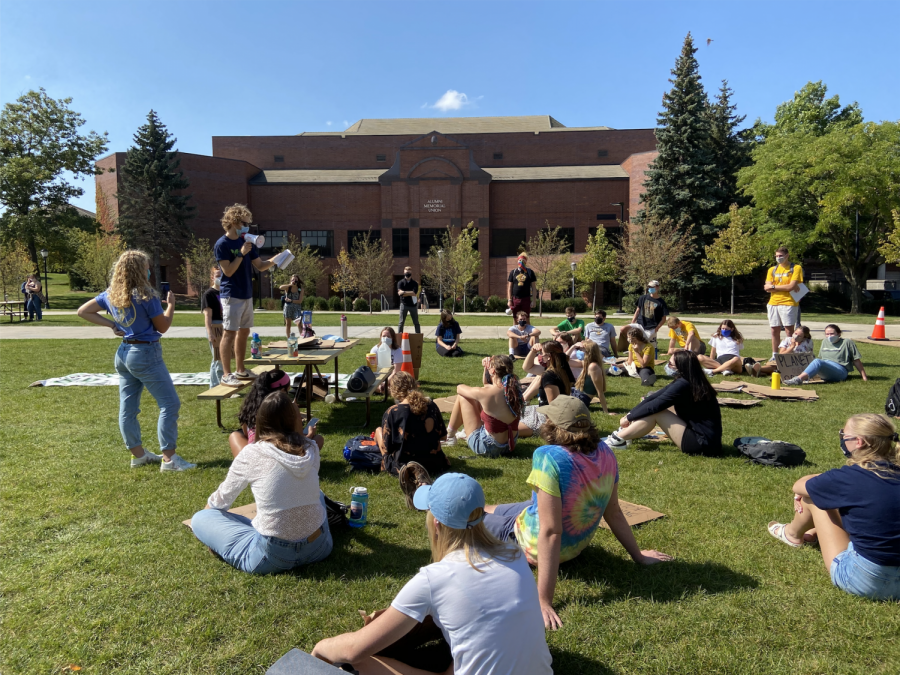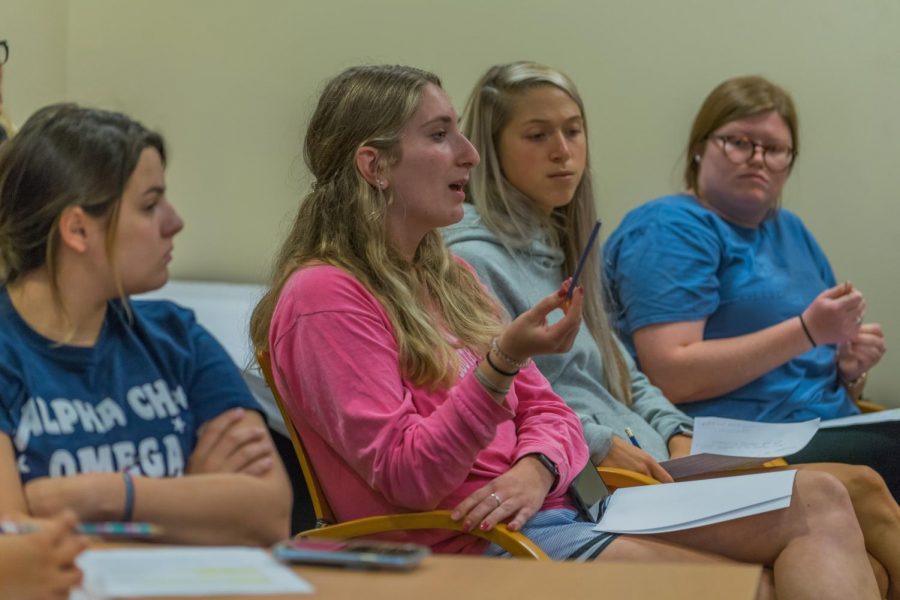 “I ask you, instead, to be revolutionaries, I ask you to swim against the tide; yes, I am asking you to rebel against this culture that sees everything as temporary and that ultimately believes you are incapable of responsibility, that believes you are incapable of true love.”
“I ask you, instead, to be revolutionaries, I ask you to swim against the tide; yes, I am asking you to rebel against this culture that sees everything as temporary and that ultimately believes you are incapable of responsibility, that believes you are incapable of true love.”
These words by Pope Francis, posted outside the AMU as part of Mission Week, surprised me at first. For the past millennia, the Church represented what many saw as “the establishment,” whose doctrines, in many countries, were law. And so, it is not without a bit of irony that in the 21st century, the head of that same church would rally for a new counterculture against the status quo.
First, some context. The quote comes from Pope Francis’ address to volunteers at World Youth Day 2013 in Brazil and was preceded by a statement lamenting what he saw as the decline of marriage in the face of a growing aversion to commitment.
“Today, there are those who say that marriage is out of fashion. Is it out of fashion,” Francis asked. “In a culture of relativism and the ephemeral, many preach the importance of ‘enjoying’ the moment. They say that it is not worth making a life-long commitment, making a definitive decision, ‘forever’, because we do not know what tomorrow will bring.”
As college students in our late teens and early 20’s, we undoubtedly know what Pope Francis means by “enjoying the moment.” Whether it is expressed in the timeless “carpe diem” or the now stale YOLO, our culture has become one increasingly obsessed with the here and now. College, we are told, is the time to make mistakes, to have fun and to not remember what happens the next day. Once graduation comes that life ends, as the growing responsibilities of work and family prevent us from seeking those youthful indulgences.
Still, Pope Francis’ main point was not about marriage, but about what supposedly lies at the heart of it: commitment and living for someone other than oneself.
Too often, young people measure their quality of life by their relative freedom to have fun—the ability to buy new clothes on a whim, to go out with friends or go traveling, free of restrictions or burdens. Perhaps this is why so many people take jobs they do not enjoy, simply for the sake of financing good times later; if the sole purpose of life is to have fun, then it becomes a series of exhilarating highs and grinding lows. But like Huxley’s soma, a life dedicated to the pursuit of pleasure, but without purpose, is ultimately a substitute for true satisfaction.
Francis’ message is revolutionary because it urges us to not do the obvious. He calls on us to inconvenience ourselves, to take responsibility for our actions and, perhaps most difficult for a college student, to be patient and hold off on instant gratification. Above all, Pope Francis challenges us to love others—not in the cliche manners of romance, but to actually put others’ well-being before our own.
At Marquette, we are taught that our education is meant to benefit not just ourselves, but those around us. Mission Week is a wonderful opportunity to place those values in action. It is important for us to look past this one week, and even past our time here, to see that we are meant to live in a world in which there are things more important than just our mere enjoyment.






